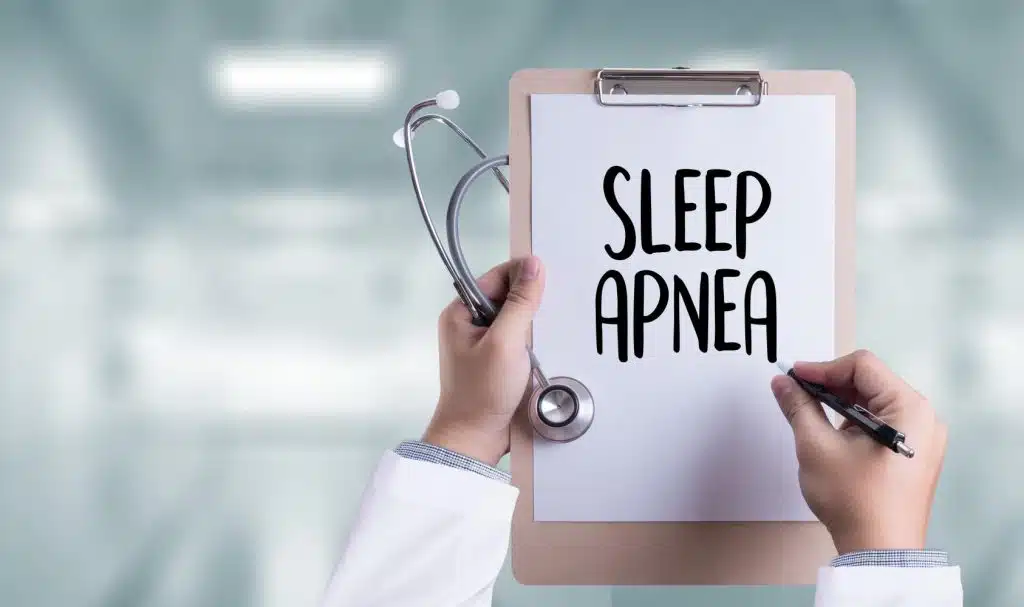Obstructive sleep apnea, or “OSA,” is a common sleep disorder that affects millions of people around the world. It is characterized by interruptions in breathing during sleep, which can lead to a variety of health problems and negatively impact daily life. At San Diego Sleep & TMJ Center, we cater our services to the diagnosis and treatment of sleep apnea and sleeping disorders. The effects of this medical complication can be further reaching than most people ever realize!
Link Between Sleep Apnea and Overall Health
Sleep apnea has been linked to a variety of health problems, including high blood pressure, heart disease, stroke, and diabetes. When your breathing is interrupted during sleep, your body’s oxygen levels can drop, which puts a strain on your cardiovascular system. Over time, this can lead to chronic health problems that can be difficult to manage. It also puts you at a higher risk of having a heart attack.
Ability to Focus on Work, School, and Driving
Sleeping disorders such as OSA can have a negative impact on your ability to focus on work, school, and everyday activities like driving a vehicle. When you are constantly waking up throughout the night due to breathing interruptions, you may feel fatigued and have difficulty concentrating during the day. This can lead to poor performance at work or school and increase your risk of having an automobile accident.
Your Metabolism and Weight
Did you know that sleep apnea has also been linked to weight gain and difficulty losing weight? When you are not getting enough restful sleep, your body’s metabolism can be disrupted, which can make it harder to burn calories (or even have the energy to exercise,) making it next to impossible to maintain a healthy weight. Additionally, sleep apnea can increase levels of the hormone ghrelin, which stimulates appetite and can lead to overeating due to the lack of quality sleep you’re getting.
Depression and Anxiety
Surprise! Sleep apnea can also have a negative impact on your mental health. Chronic sleep deprivation has been linked to depression and anxiety, which can make it difficult to enjoy daily life and engage in social activities. Additionally, the stress of dealing with sleep apnea symptoms can lead to feelings of frustration and hopelessness.
Higher Risk of TMJ Disorder and Worn Teeth
When you have sleep apnea, you’re at a much higher risk of developing temporomandibular joint (TMJ) disorder and worn teeth. When your breathing is interrupted during sleep, your body may respond by clenching or grinding your teeth together. Over time, this can lead to damage to your tooth enamel and jaw joints.
Do You Know How Sleep Apnea Affects Your Daily Life?
If you have sleep apnea, it is important to understand how it can affect your daily life. Some common symptoms of sleep apnea include loud snoring, gasping or choking during sleep, morning headaches, and daytime fatigue. If you are experiencing any of these symptoms, it is important to speak with a sleep specialist about getting a diagnosis and treatment. We offer take-home sleep studies that you can complete without visiting an overnight sleep lab.
What is Oral Appliance Therapy?
Oral appliance therapy is a non-invasive treatment option that involves wearing a custom-fitted oral appliance during sleep. This device helps to keep your airway open by repositioning your jaw and tongue. In many cases, it eliminates the need for using a bulky CPAP machine.
Sleep Apnea Treatment in San Diego
At San Diego Sleep & TMJ Center, we offer a variety of treatment options for sleep apnea, including oral appliance therapy. Our team of sleep specialists will work with you to develop a personalized treatment plan based on your specific needs and preferences.
If you’re experiencing symptoms of sleep apnea, it is important to speak with a sleep specialist about getting a diagnosis and treatment. At San Diego Sleep & TMJ Center, we are committed to helping our patients achieve restful sleep through minimally invasive strategies like oral appliances. Contact our office today to reserve a sleep screening.


